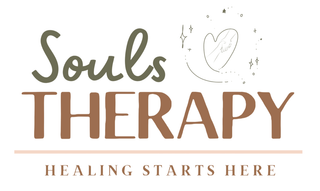OVERCOMING SELF-DOUBT AND BUILDING AUTHENTIC CONNECTIONS
Imposter syndrome is often discussed in the context of careers and achievements, but its impact extends far beyond professional settings. In relationships, imposter syndrome can create deep insecurities, feelings of inadequacy, and an overwhelming fear of being "found out" as unworthy of love and connection. These emotions can silently sabotage intimacy and trust, leaving individuals feeling disconnected and unfulfilled.
If you've ever felt like you're not good enough for your partner, doubted your worth in a relationship, or struggled to believe that you deserve love and happiness, you're not alone. This blog post will explore the nuances of imposter syndrome in relationships, its origins, and actionable steps to overcome it.
Let’s embark on a journey toward self-acceptance and authentic connections.
Understanding Imposter Syndrome in Relationships
Imposter syndrome in relationships is characterized by the belief that you are not deserving of your partner's love, admiration, or commitment. Despite evidence of a healthy, loving relationship, you may feel as though your partner is settling for you or will eventually realize you're not "good enough." This can lead to:
-
Constantly seeking validation and reassurance from your partner
-
Fear of vulnerability and emotional intimacy
-
Overcompensating by trying to "earn" love
-
Feeling threatened by your partner’s achievements or attractiveness
-
Difficulty accepting compliments or expressions of love
These behaviors stem from an internalized fear of inadequacy and a distorted sense of self-worth, which can undermine even the most loving relationships.
Origins of Imposter Syndrome in Relationships
To address imposter syndrome, it’s important to understand its roots. Often, these feelings arise from past experiences and deep-seated beliefs, such as:
1. Childhood Experiences
-
Growing up with overly critical or distant caregivers may lead to feelings of unworthiness and fear of rejection.
-
Comparisons to siblings or peers can instill a belief that you’re "not enough."
2. Past Relationships
-
Toxic or abusive relationships may reinforce insecurities and create a fear of vulnerability.
-
Experiences of betrayal or abandonment can leave emotional scars that resurface in new relationships.
3. Perfectionism
-
Holding yourself to impossibly high standards can lead to constant self-criticism and fear of failure.
-
Perfectionism often fuels the belief that you must "earn" love rather than simply being deserving of it.
Understanding these origins can provide clarity and compassion as you work toward healing.
The Impact of Imposter Syndrome on Relationships
Imposter syndrome doesn’t just affect your internal world—it also influences how you interact with your partner. Some common impacts include:
1. Emotional Distance
-
Fear of being "found out" as unworthy may cause you to withhold vulnerability, creating barriers to intimacy.
2. Overcompensation
-
You might go above and beyond to "prove" your worth, leading to burnout and resentment.
3. Jealousy and Insecurity
-
Doubting your value can make you feel threatened by others, even when your partner’s commitment is clear.
4. Self-Sabotage
-
Fear of rejection may lead to behaviors that push your partner away, fulfilling a self-fulfilling prophecy of abandonment.
Recognizing these patterns is the first step toward change.
Overcoming Imposter Syndrome in Relationships
The journey to overcoming imposter syndrome in relationships requires patience, self-awareness, and actionable strategies. Here are five steps to help you cultivate self-worth and build authentic connections:
1. Challenge Negative Self-Talk
-
Replace self-critical thoughts with affirmations that reinforce your worthiness. For example:
-
Instead of: "I’m not good enough for my partner."
-
Say: "I bring love and value to this relationship."
-
-
Journaling can help you identify and reframe these negative beliefs.
2. Embrace Vulnerability
-
Allow yourself to share your fears and insecurities with your partner. Vulnerability builds trust and deepens emotional intimacy.
-
Start small by expressing a worry or fear and noticing your partner’s response.
3. Focus on Self-Love
-
Practice self-compassion by treating yourself with the same kindness you offer to others.
-
Engage in activities that boost your confidence, such as pursuing hobbies or setting personal goals.
4. Set Boundaries with Perfectionism
-
Recognize when you’re striving for unattainable standards and give yourself permission to be human.
-
Celebrate small wins and progress rather than focusing on perceived failures.
5. Seek Support
-
Consider therapy or coaching to explore the roots of imposter syndrome and develop tools for growth.
-
Open conversations with trusted friends or support groups can also provide validation and encouragement.
Reframing Your Perspective on Love
One of the most transformative shifts in overcoming imposter syndrome is changing your perspective on love and relationships. Instead of viewing love as something you must earn, recognize it as a shared journey of mutual growth and support. Healthy relationships are built on:
-
Mutual Respect: Acknowledge that both you and your partner bring value to the relationship.
-
Shared Vulnerability: Embrace the imperfections that make each of you unique.
-
Empathy and Understanding: Practice kindness toward yourself and your partner as you navigate challenges together.
Introducing the Overcoming Imposter Syndrome Workbook
If you’re ready to take the next step in overcoming imposter syndrome, the "Overcoming Imposter Syndrome" Workbook is here to guide you. Designed with compassion and practicality, this workbook offers:
-
In-Depth Exercises: Explore your insecurities and uncover the roots of your self-doubt.
-
Practical Tools: Learn strategies to reframe negative beliefs and cultivate self-worth.
-
Actionable Steps: Develop a roadmap for building confidence and authentic connections.
-
Journaling Prompts: Reflect on your experiences and track your growth.
At SOULS THERAPY, we believe that everyone deserves to feel worthy of love and connection. This workbook is more than a resource—it’s a companion on your journey to self-acceptance and emotional freedom.
Imposter syndrome in relationships may feel isolating, but it’s a challenge you can overcome with the right mindset and tools. By addressing your insecurities and cultivating self-compassion, you can build relationships founded on trust, authenticity, and love. Remember, you are enough—just as you are.

